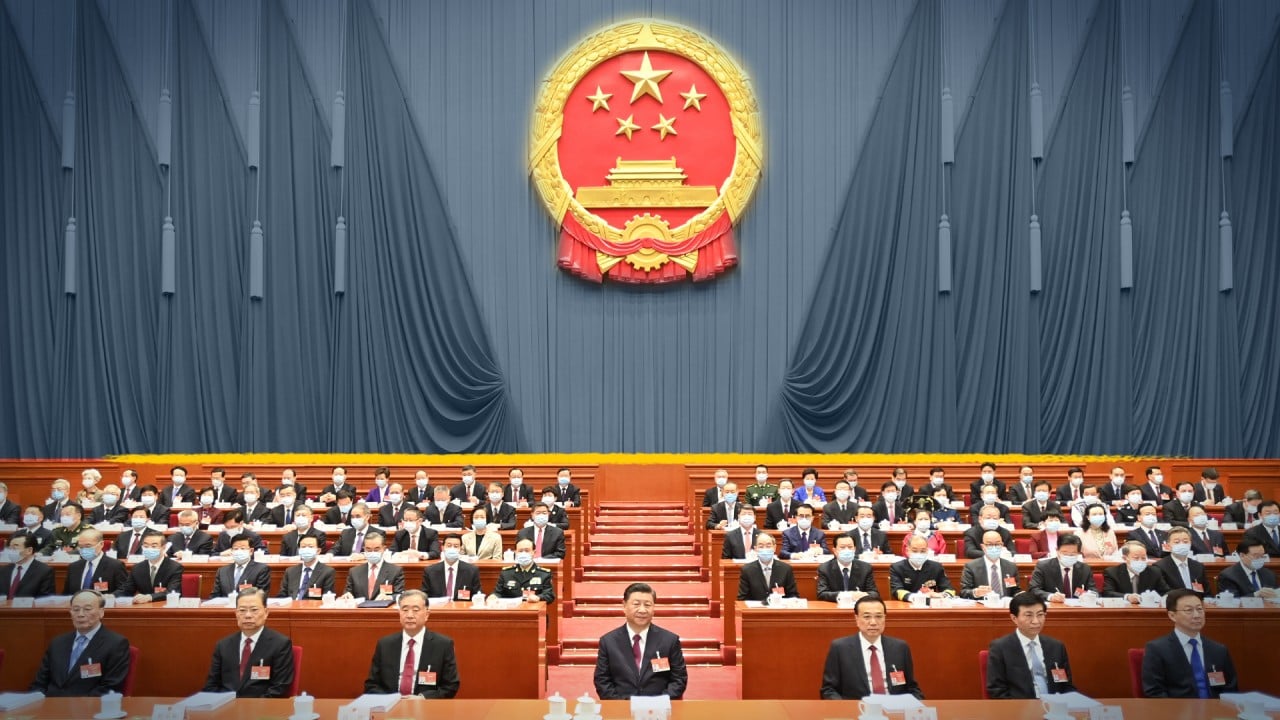
Will China ever relax zero-Covid? Foreign firms seek signals at 20th party congress
- Foreign investors are watching closely for signs of a shift in China’s zero-Covid policy at the 20th party congress
- The mood among multinationals is increasingly despondent and many are reporting difficulty on the ground
Foreign firms have warned many in China are in danger of “losing hope” if there is no change to the country’s draconian pandemic rules, after Beijing sent its clearest message yet that it is sticking with its zero-Covid strategy.
Amid growing frustration, the Chinese public and investors are closely watching for signs of a policy shift at the 20th party congress that starts on Sunday.
The current mood in China is “really down” and many people are looking for significant change after the twice-a-decade congress, including reopening of the border, said Harald Kumpfert, chairman of the Shenyang chapter of the European Union Chamber of Commerce in China.
If there is no change, then more people will lose hope
“If there is no change, then more people will lose hope,” he said on Thursday during a webinar.
Christoph Schrempp, chair of the European chamber in Tianjin, said he knew of one European software company shifting its headquarters from the city in northern China to Singapore.
The business environment was deteriorating and it was a “difficult situation” on the ground, he told the webinar.
‘The old rules are being broken’: uncertainty plagues China’s economy
The government’s zero-Covid policy, which relies on mass testing, travel restrictions, sudden lockdowns and quarantine has hammered the economy.
It is also being blamed for expediting a brain drain and capital outflows from the world’s No 2 economy.
Although there has been a lot of discussion about how soon China might loosen restrictions, all predictions have been way off the mark since 2020, said Colm Rafferty, chairman of the American Chamber of Commerce in China.
“Without official notification, any Covid exit timeline estimate is purely speculative,” he said.
“As a result, our member companies conduct and continuously update scenario planning and risk mitigation measures for every possibility.”
AmCham China has called for the relaxation of travel restrictions, including lengthy quarantines, to help strengthen people-to-people exchanges.
Some 77 per cent of American businesses cited the length of quarantine and lockdowns as the primary reason for foreign employees leaving or refusing to relocate to China, according to an AmCham China survey earlier this year.
“Things have moved in the right direction in terms of reduced quarantine durations, but much slower than our member companies would like,” said Rafferty, adding more effort was needed, given many other countries had reopened and relaxed Covid protocols.
Multiple analysts expect zero-Covid to continue beyond the party congress until at least the “two sessions”, which is expected to take place in March, as the government reshuffle will not be completed until then and there is potential for virus flare-ups during the winter.
‘Highly investible’ China woos foreigners but withholds what they want most
Liang Wannian, head of an expert panel on China’s Covid-19 response, told state broadcaster CCTV on Wednesday there was no timeline for an exit from the strategy.
Wu Zunyou, chief epidemiologist at the Chinese Centre for Disease Control and Prevention, said a day later that zero-Covid has been proven to be “scientific” and it must be “unswervingly” followed.
“In terms of the two indicators of morbidity and mortality, comparatively speaking, Chinese people are least affected by Covid-19 in the world,” he said.
China’s overall Covid picture has worsened dramatically since the beginning of October, with all 31 provincial-level jurisdictions recording local outbreaks.
Small and medium-sized enterprises (SMEs), especially those in the private sector, will suffer if the controls continue, said a departmental manager of a local bank in Foshan, Guangdong province.
“For the sake of capital security, banks will certainly tend to lend to state-owned enterprises, instead of SMEs,” said the manager, who refused to give his name given the sensitivity of the issue.
Rigid Covid controls were responsible for the sluggish job market, especially among young people, according to Huang Wenzheng, a demographer who has written extensively on China’s birth rate and labour issues.
Another year of zero-Covid equals another year of depressed consumer activity
“If it lasts long term, a large number of young people will postpone or even shelve their marriage and childbirth plans,” he said.
Looking ahead, the uncompromising messaging of state media raises a question of whether the leadership ever intends to relax zero-Covid, said Julian Evans-Pritchard, senior China economist at Capital Economics, on Thursday.
“We think it will eventually conclude that it has to,” he said, adding successively more virulent strains were making the zero-Covid harder to maintain.
“Another year of zero-Covid equals another year of depressed consumer activity and a high risk of recurrent large-scale lockdowns.”



